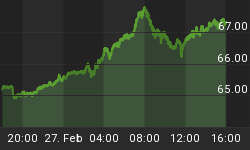Robinhood, the popular zero-fees stock trading app that’s proven a big hit with millennials to the point that it’s disrupting Wall Street, has now set its eyes on an even bigger prize: banks.
The 5-year-old stock brokerage unveiled "Robinhood Checking & Savings’’ on Thursday, with a promise to pay customers a three-percent interest rate on their savings, every day. That’s 30x the national average of 0.1 percent on a savings account, and nearly a whole percentage point higher than Marcus’ industry-leading 2.05 percent annual percentage yield. Marcus is Goldman Sachs' consumer banking arm.
Checking accounts on average pay out an even more measly 0.08 percent annual interest.
The Amazon of Banking
But perhaps the biggest draw will be the no-fee model it plans to use—and for which the startup has become a millennial obsession.
"We as a company are going make the financial services industry more inclusive and are going to do it with zero commissions, a lower cost structure, and by relentlessly automating and building an engineering-first company. We're charging no fees, period," Robinhood co-CEO Baiju Bhatt told CNBC. Related: Marijuana Looks For Its Next Big Win In New York
That might sound outrageous coming from any other startup but Robinhood. After all, it’s through this model that the app has managed to attain a valuation of nearly $6 billion in its short life. For perspective, that’s about a third the valuation of E-Trade, a leading online brokerage founded 36 years ago.
Robinhood says it will not employ the traditional banking model of using customer deposits to make loans and profit from a host of fees including account maintenance fees, penalty charges, ATM fees, foreign transaction fees and so on. Instead, the company plans to borrow a leaf from Amazon Inc.’s (NASDAQ:AMZN) playbook of focusing on growth first and thinking about profits later. It’s a model championed by many SaaS start-ups, too, with many selling this idea of building a loyal customer base first then trying to monetize it later.
"Amazon built an entire business around a strategy that makes that long-term investments in financial services. We fully intend to make money off of this but we do not need it to be profitable on day one," Bhatt said.
Robinhood certainly knows a thing or two about shunning profits for growth, having recorded massive growth in its customer base in the current year after jumping from 5 million to six million accounts in a matter of months.
Robinhood users are mostly millennials and Generation Xers in the 28-41 age bracket, many of whom use the app to first dip their toes in the world of stocks investing. The company was valued at $5.6 billion in March during a round of funding, a massive 330 percent increase compared to the prior year.
Regarding the question of how the company intends to eventually monetize its users, Bhatt says the startup will split debit card transactions with MasterCard Inc. (NSYE:MA), earn interest off customer assets it holds in trust and also invest in government paper such as U.S. Treasuries.
Related: Gibraltar Flare-Up Could Further Complicate Brexit
Robinhood currently earns a living by charging a fraction of a cent per dollar for each trade order and collecting interest on customer deposits. Further, the company makes money from a subscription service known as Robinhood Gold that it launched in September 2016.
Another important Amazon-esque feature: Robinhood says it has no intention of ever selling customer information to third-parties. Retailers frequently chafe at Amazon’s tight hold on customer data which it refuses to sell.
Fintechs Eating Banks’ Lunch
Fintechs are far more successful in Europe and China than in the U.S. Britain’s Revolut recently made history by becoming the first ever digital-only bank to attain unicorn status. China’s Ant Financial Services Group (formerly an Alibaba Inc. (NYSE:BABA) subsidiary) boasts 620 million users and dominates the huge Chinese money market fund much to the chagrin of the local banking industry.
Ant Financial has grown that big through micro-banking and an ethos very similar to Robinhood’s.
It’s probably going to be a cinch for Robinhood to cross-sell its banking products to its already impressive investor use base. Robinhood might very well run rings around American banks one day.
By Alex Kimani for Safehaven.com
More Top Reads From Safehaven.com
















